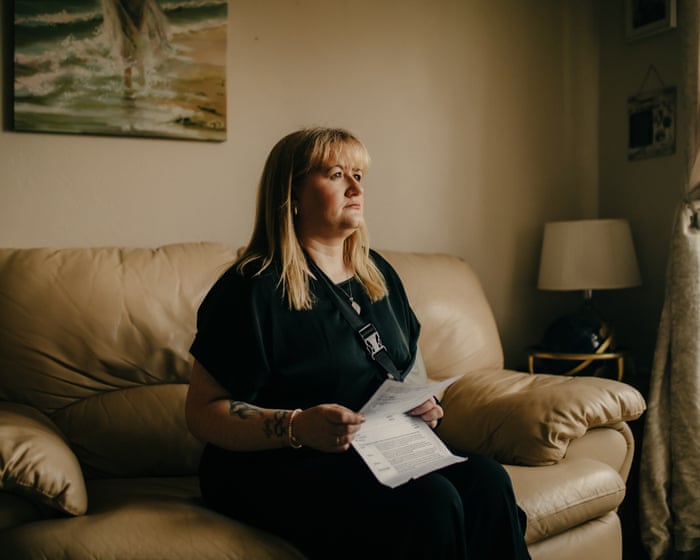“My love for my mother is like an axe,” the narrator of Deborah Levy’s 2016 novel Hot Milk tells us. “It cuts very deep.” Set in the Spanish coastal city of Almería, the book—now adapted into a film starring Sex Education‘s Emma Mackey—is a sun-soaked exploration of a daughter bound to her sick mother.
Hot Milk joins a growing body of literature about absent, fading, or emotionally distant mothers—stories where the maternal figure recedes to the edges, allowing the daughter to take center stage. Think of Gwendoline Riley’s My Phantoms and First Love, both depicting strained mother-daughter relationships, or Elena Ferrante’s The Lost Daughter, where the protagonist, Leda, is both an overlooked daughter and an abandoning mother, a collision that sparks emotional turmoil.
Writers often fall into the narrative habit of portraying mothers as either too powerful or too central, leaving little room for the daughter’s growth. These stories carve out space for daughters to struggle, define themselves, and evolve. Yet, they also show that we never fully escape our mothers. She lingers at the edges of our identity—both a threat to our independence and the origin of our being.
The film adaptation of Hot Milk, written by Rebecca Lenkiewicz and released in the UK last month, follows Sofia and her mother, Rose, as they travel to Spain seeking a cure for Rose’s mysterious paralysis. In the novel, Sofia seems to absorb her mother’s pain: “Sometimes, I find myself limping,” she says. “It’s as if my body remembers the way I walk with my mother.” Her psychosomatic symptoms mirror her mother’s illness, and she must break free from Rose’s feigned helplessness to reclaim her own body and desires.
What’s most striking is that Levy, who avoids sentimental resolutions, shows this separation isn’t always clean. Sofia’s freedom isn’t triumphant—it’s unsettling and unstable. Levy doesn’t promise clarity after detachment, only the dizzying uncertainty of it. Few stories capture this psychological tether so vividly.
In my own novel, Selfish Girls, three women grapple with being daughters while yearning for freedom. To write about this tension, I first had to ask: Why does the mother’s absence make for such compelling storytelling? Why do we keep returning to it? The answer lies in cultural contradictions—motherhood is revered as sacred, yet mothers themselves are often invisible or misunderstood. A mother will always be defined by her absence because she can never be fully present—or never in the way we need. There’s also the ache of her being both familiar and unknowable. She’s the closest stranger we’ll ever love, and that’s narrative gold.
As Ferrante writes in The Lost Daughter: “The hardest things to talk about are the ones we ourselves can’t understand.” The question “Who was my mother, really?” drives the story.
My own mother was an enigma I had to release to become myself, yet she was also someone so close—her laugh echoing in mine, her face glimpsed in my reflection. In a way, my novel reckons with wanting to understand her even as I detached—getting married, starting my own family, moving abroad, putting an ocean between us. It’s about idolizing and rejecting her at once, the ambivalence and guilt of stepping away tangled with quieter grief and shame.I had felt abandoned long before. Maybe writing could help me revisit those unexplored depths of love and resentment, shaping them into something bearable—my own story—without losing the parts of my mother that still mattered.
My mother was an enigma I needed to release to become myself. Riley captures this tension with sharp realism and dry wit in First Love. Neve gets a text from her mother: “CUT ALL MY HAIR OFF DO YOU WANT BOBBLES AND BRUSHES ETC. MUM.” Only later does it emerge that she’s struggling after a breakup. With perfect humor, Riley shows a mother who’s physically present but emotionally distant. Neve remembers their strained visits and shallow phone calls.
For Riley, motherhood is a performance—all surface, no depth—leaving daughters feeling alone even in their company. It’s not enough for a mother to simply exist; she must embody the right kind of motherhood.
In her lecture Motherhood Today, philosopher Julia Kristeva references Donald Winnicott’s idea of the “good enough mother”—one who knows when to step back, making space for the child’s independence.
Levy, Riley, and Ferrante attempt on the page what we rarely achieve in life: absorbing the mother fully, letting her live within us. In Hot Milk, Levy doesn’t resolve the mother-daughter struggle but lets it linger—an undeniable, bodily inheritance. These stories don’t offer catharsis but something braver: allowing the mother to remain inside the daughter, not as a burden or an ideal, but as a presence the self must grow around.
Selfish Girls is published by Hodder & Stoughton.



